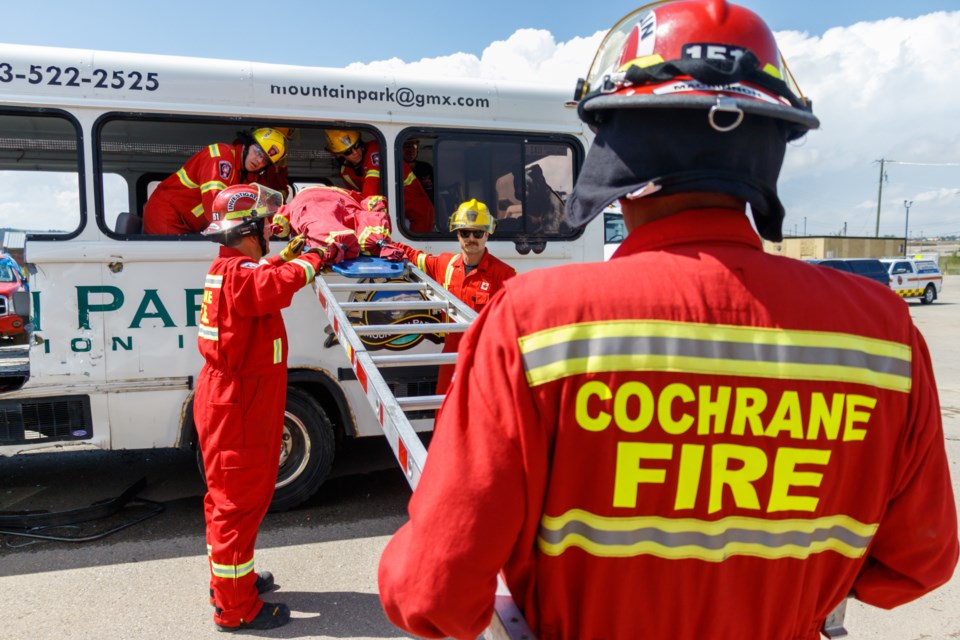COCHRANE— Diligently training for the next emergency call, Cochrane Fire Services participated in an advanced vehicle extraction program on Thursday (July 30).
Deputy Fire Chief Shawn Polley said the COVID-19 pandemic did put a “damper” on the 2020 training program for Cochrane Fire Services because crews have been unable to train every month as they typically would— Crews were unable to train from March to May and missed most of June deu to the virus.
Polley said the majority of the 47 Cochrane Fire Services members participated in the advanced vehicle extraction program. The training provides Fire Services with complicated scenarios to work through as a team.
The program was led by the contractor Alberta Vehicle Extrication Association with instructor Randy Schmitz.
“We’re very fortunate to be able to partner with him and have him come and teach our members all of these great tips and skills and demonstrate the technology,” Polley said. “The advancement of technology on vehicles and safety systems that are in place in those vehicles has resulted in a drop in fatalities."
A key aspect of the training is learning how to safely access vehicles based on advanced technology— Polley explained in some cars the wrong cut at the wrong spot can result in an airbag deploying at more than 100km/hr while members are trying to save someone.
Rescue crews can use simple hand tools like screwdrivers and hacksaws to more advanced power tools.
“We need to exactly where those airbag cylinders— We need to make sure we’re practicing,” Polley said.
Fire Services had access to eight cars and a small bus during the training exercises. Members prepared for several different scenarios including an upside-down vehicle, trapped patients and a bus emergency.
“Crew are tired when they’re done training,” Polley said with a smile.
He noted that the training exercises also plays a critical role in fostering teamwork and cohesion between members. He explained when arriving on the scene it is important to ensure Fire Services has excellent teamwork, leadership and communication to ensure they find success.
“They’re moving all as a unified team. It’s always great to see the members work towards that common goal which is always about the patient and doing no harm,” Polley said. “They’re doing a good job.”
Fire Services typically responds to around three-vehicle collisions a month, most of which are fender benders. Polley added last winter Cochrane Fire Services were invited to help assist with a rollover on Highway 1.
Fire Services typically sees high-speed collisions when invited to respond to calls within the areas of Rocky View County or the MD of Bighorn.
“We support them with some of the larger more complex events because it provides more resources,” Polley said. He added that each area's Fire Services can bring critical skills with them.
Polley urged Cochranites to stay safe while driving wear a seatbelt, avoid distracted driving, follow the speed limit and ensure a vehicle is in good mechanical order.
“Your survivability is much higher,” Polley said.




